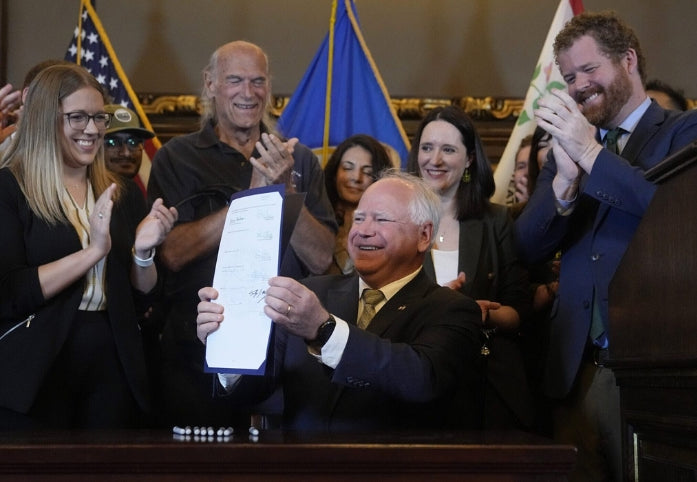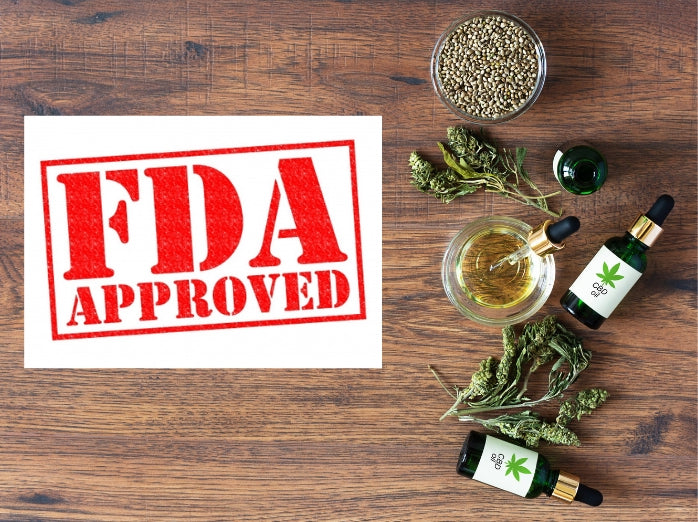With the campaign closing in on the required number of signatures to add the measure to the 2024 ballot, Florida's Attorney General is attempting to block the grassroots effort.

As the state of Minnesota is on the precipice of becoming the 23rd state to legalize adult-use cannabis in the United States this week, other states like Florida are also trying to pass marijuana legalization reform and join the recreational cannabis club as well. Last August, the "Smart & Safe Florida" political committee began its campaign to push for recreational cannabis legalization in the state through its initiative, the "Adult Personal Use of Marijuana" proposal.
Funded almost entirely by the multi-state medical marijuana operator, Trulieve (Florida's largest medical cannabis operator), the committee's goal is to gather sufficient verified Florida voter signatures to add the legalization measure to the 2024 ballot. The committee needs to amass at least 891,059 verified signatures to get on the ballot in 2024, with a pre-determined number of those signatures required to come from at least half of the congressional districts in the state.
If the measure makes it to the ballot and receives approval by 60% of Florida voters, it will add an amendment to the Florida State Constitution allowing people 21 or older "to possess, purchase, or use marijuana products and marijuana accessories for non-medical personal consumption by smoking, ingestion, or otherwise."
Additionally, and most notably, it would enable any of the current 22 medical marijuana companies in Florida, like Trulieve, to begin selling cannabis to all adults over the age of 21. Furthermore, it would contain a provision enabling lawmakers to take steps toward approving additional businesses as potential sellers but does not require it. Finally, the proposed amendment would prohibit individuals from growing cannabis plants for personal use.
According to multiple media outlets, the group is close to gathering the necessary signatures, which has prompted the Florida Attorney General to try and block the measure from making it to the voters in 2024. Currently, the campaign estimates it has collected roughly 94 percent of the required signatures.
Moreover, since the Florida Division of Elections updates ballot signature counts at the end of each month, industry watchers and advocates believe that once May's numbers are tallied, the goal of 891,059 signatures will be comfortably secured.
In anticipation of that inevitable outcome, Attorney General Ashley Moody (R) submitted an opinion contesting the reform measure based on a "single-subject challenge" last week, a strategy she has employed with previous legalization efforts.
Florida's Constitution contains a single-subject rule, which requires ballot proposals to be narrow in focus on an individual issue and not be misleading to voters at the ballot box. Moody made the same claims against two proposed measures submitted by Make It Legal Florida and Sensible Florida in 2021, and the court ruled to invalidate both of those initiatives before the 2022 election.
Before ruling on the Attorney General's opposition claim, the Supreme Court said initial briefings on the case would be due by June 12, with reply briefs to be submitted by July 5 and 12. Activists and organizers from the Smart and Safe Florida committee anticipated this strategy on the part of the Florida AG's office and are confident their measure meets the necessary constitutional requirements to satisfy the single-subject rule.
Despite Moody's consistent and continued opposition to any cannabis legalization reform, Floridians appear ready to welcome legal adult-use marijuana with open arms. According to a University of North Florida poll conducted this past March, 70% of those surveyed either somewhat or strongly support ratifying an amendment to the Florida State Constitution to legalize recreational cannabis. In comparison, only 29% strongly or somewhat opposed the initiative.
In a press release, Michael Binder, a Political Science professor at UNF and the faculty director of the UNF Public Opinion Research Lab (PORL), said, "Efforts to put recreational marijuana in front of voters in 2024 are in the beginning stages, but support for it is high across the political spectrum. If it makes it onto the ballot next year, and that's a big 'if,' it has a good chance of reaching the 60 percent supermajority needed to pass."
"Efforts to put recreational marijuana in front of voters in 2024 are in the beginning stages, but support for it is high across the political spectrum. If it makes it onto the ballot next year, and that's a big 'if,' it has a good chance of reaching the 60 percent supermajority needed to pass."
- Dr. Michael Binder, Dir. of the Univ. of North Florida Public Opinion Research Lab
However, even with strong support from the Florida electorate and legal approval from the state's highest court, the Smart and Safe Florida committee remains problematic in and of itself. As mentioned earlier, the campaign is almost entirely funded by the medical marijuana behemoth, Trulieve, which has contributed over $38 million.
If the measure makes it to the ballot in 2024 and receives approval by at least 60% of voters, the most significant financial beneficiaries of the new law would be companies like Trulieve, and that is understandably and justifiably problematic for legalization advocates and stakeholders wary of the involvement of large multi-state cannabis operators injecting themselves in the political process of enacting legalization reform at the state level.
The Florida case is eerily similar to a scenario voters in Arkansas faced this past election cycle when a similar constitutional amendment initiative went on the ballot for its voters to consider. In that instance, a groundswell of opposition to the proposal ultimately defeated efforts on the part of that state's medical marijuana establishment to create a system very similar to the one offered by Trulieve's Smart and Safe campaign.
The one wild card in this entire process is the wildly unpredictable nature of the decision-makers in the Sunshine State. With past initiatives failing due to the single-subject provision, it is not out of the realm of possibility that even with the significant financial and political backing of one of the world's largest cannabis companies, the "Adult Personal Use of Marijuana" proposal could conceivably be struck down by the court.
Regardless of the outcome, the issue of an apparent conflict of interest on the part of political action groups getting involved in the high-stakes game of marijuana legalization reform must be addressed sooner than later by lawmakers and the courts. If not, the legal cannabis industry could end up emulating the model of Big Alcohol, which is a dark and perilous direction no one wants to travel.






































